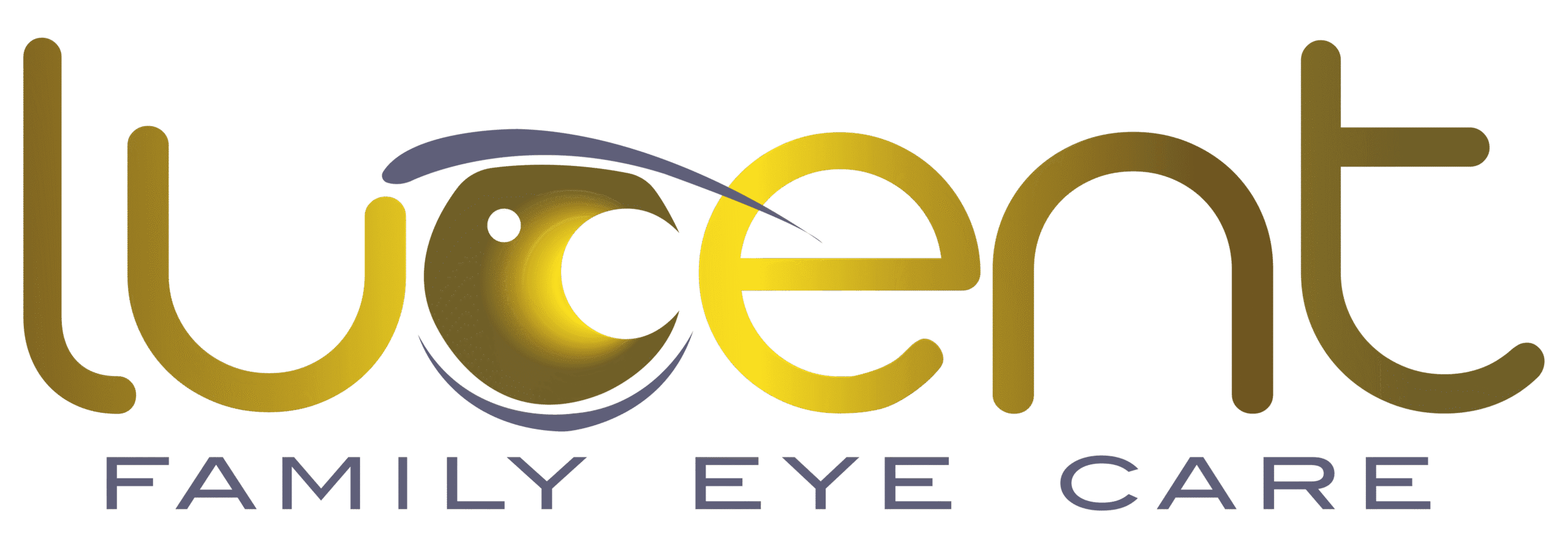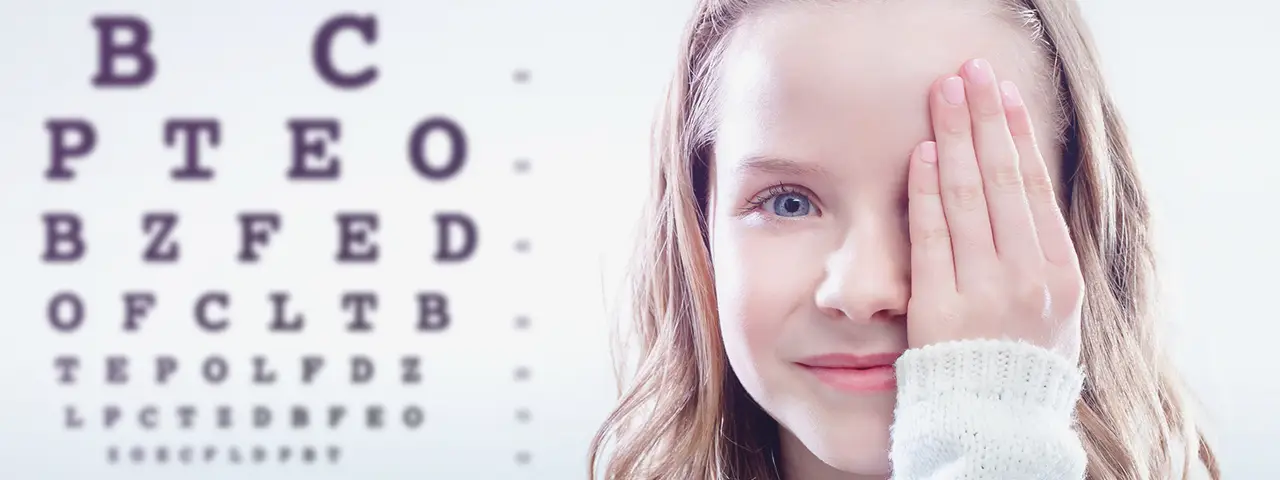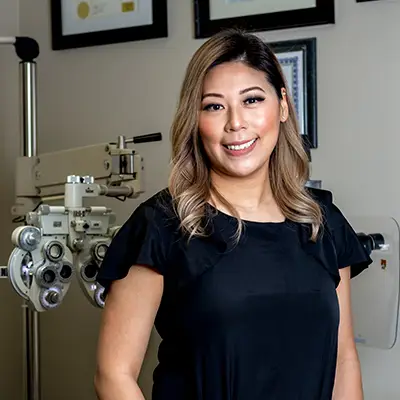
Close

Children’s vision is often overlooked, as young patients may have difficulty expressing their visual experiences in a way that adults can understand. Recognizing vision issues in children requires careful attention to subtle signs and symptoms.
As a child’s eyes develop, a variety of vision problems can occur. Beyond refractive errors such as nearsightedness (myopia) and farsightedness (hyperopia), children may experience other visual or perceptual conditions that are not always detected during routine vision screenings. These can include astigmatism, amblyopia (lazy eye), strabismus (eye misalignment), convergence insufficiency, and difficulties with visual processing or tracking.
Early detection and comprehensive eye examinations are essential to identify and address these issues, supporting your child’s visual development and overall well-being.
If your child is struggling in school or with homework, their vision may be a contributing factor. Research indicates that approximately 80% of learning is visual, so any difficulty seeing clearly can significantly impact a child’s academic performance.
To support healthy growth and development, it is essential to have your child’s eyes and vision evaluated by an eye care professional at key stages throughout their development. Regular eye examinations help ensure that children have the visual resources they need to succeed in and out of the classroom.


Children’s Vision Problems and Our Approach to Care
Children’s vision plays a critical role in their growth, learning, and overall development. However, vision problems in children are often overlooked, as young patients may not be able to clearly express their symptoms. Early detection and intervention are essential to support your child’s academic performance and quality of life.
Children can experience a variety of vision issues, including:
At Lucent Family Eye Care, we are committed to providing thorough pediatric eye care.


If the eye doctor does determine that your child has a vision problem, they may discuss several therapeutic options such as eyeglasses or contact lenses, an eye patch, vision therapy or Ortho-k, depending on the condition and the doctor’s specialty.
Since some conditions are much easier to treat when they are caught early while the eyes are still developing, it is important to diagnose any eye and vision issues as early as possible.
A baby’s visual system develops gradually over the first few months of life. They must learn to focus and move their eyes and use them together as a team. The brain also needs to learn how to process the visual information from the eyes to understand and interact with the world. With the development of eyesight, also comes the foundation for motor development such as crawling, walking and hand-eye coordination.
You can ensure that your baby is reaching milestones by keeping an eye on what is happening with your infant’s development and by ensuring that you schedule a comprehensive infant eye exam at 6 months. At this exam, the eye doctor will check that the child is seeing properly and developing on track and look for conditions that could impair eye health or vision (such as strabismus (misalignment or crossing of the eyes), farsightedness, nearsightedness, or astigmatism).
Since there is a higher risk of eye and vision problems if your infant was born premature or is showing signs of developmental delay, your eye doctor may require more frequent visits to keep watch on his or her progress.
The toddler and preschool age is a period where children experience drastic growth in intellectual and motor skills. During this time they will develop the fine motor skills, hand-eye coordination and perceptual abilities that will prepare them to read and write, play sports and participate in creative activities such as drawing, sculpting or building. This is all dependent upon good vision and visual processes.
This is the age when parents should be on the lookout for signs of lazy eye (amblyopia) – when one eye doesn’t see clearly, or crossed eyes (strabismus) – when one or both eyes turns inward or outward. The earlier these conditions are treated, the higher the success rate.
Parents should also be aware of any developmental delays having to do with object, number or letter recognition, color recognition or coordination, as the root of such problems can often be visual. If you notice your child squinting, rubbing his eyes frequently, sitting very close to the tv or reading material, or generally avoiding activities such as puzzles or coloring, it is worth a trip to the eye doctor.
Proper learning, motor development, reading, and many other skills are dependent upon not only good vision, but also the ability of your eyes to work together.
Children that have problems with focusing, reading, teaming their eyes or hand-eye coordination will often experience frustration, and may exhibit behavioral problems as well. Often they don’t know that the vision they are experiencing is abnormal, so they aren’t able to express that they need help.
In addition to the symptoms written above, signs of vision problems in older children include:
In addition to basic visual acuity (distance and near vision) an eye exam may assess the following visual skills that are required for learning and mobility:
Binocular vision: how the eyes work together as a team
Following the guidelines for children’s eye exams and staying alert to any signs of vision problems can help your child to reach his or her potential.


With the increasing use of digital devices it is important to teach your children how to protect their eyes while they are still young.


Myopia is a common vision problem affecting children who can see well up close, but have problems seeing in the distance.


Vision Therapy is a program of progressive eye exercises, designed to treat conditions like strabismus and amblyopia.

